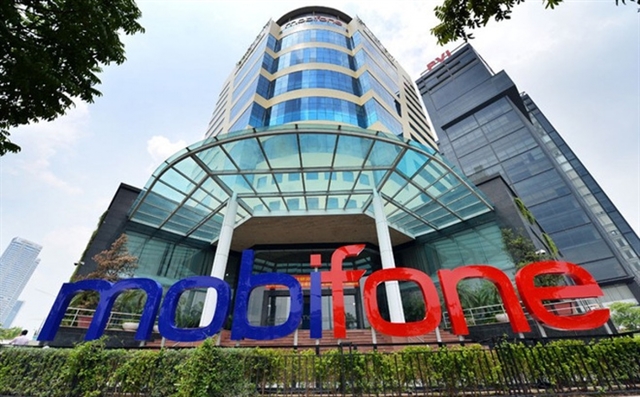 Economy
Economy


|
| The headquarters of Mobifone, an equitised SOE. Only three SOEs have been equitised since the beginning of this year. Photo vov.vn |
HÀ NỘI - The outbreak of COVID-19 in many localities has delayed the equitisation of State-owned enterprises (SOEs), according to Đặng Quyết Tiến, director of the Corporate Finance Department.
According to the Corporate Finance Department under the Ministry of Finance, the Prime Minister approved a plan on equitising 128 enterprises in the 2017-2020 period. However, only 39 of them completed equitisation, reaching 30 per cent. The remaining 89 businesses was scheduled to be equitised this year.
Since the beginning of the year, only three enterprises have been equitised but they were not on the list of 89 enterprises as planned.
The Ministry of Finance has admitted that it is difficult to implement the equitisation of enterprises in 2021.
Tiến said that many SOEs had not completed the legal procedures on realignment and handling of real estate before equitisation according to regulations on the rearrangement and handling of public property. There were still many financial problems and others to be solved.
In addition, according to the department, the implementation of equitisation and divestment has depended on the market. It has meant choosing a reasonable time to sell shares. Therefore, the equitisation and divestment of enterprises every year have not reached the results as targeted.
Especially, according to Tiến, the COVID-19 outbreak in many localities, including Hà Nội and HCM City, has affected the valuation of enterprises and state capital at SOEs.
The two largest cities have a large number of businesses under equitisation, accounting for 60 per cent of the number of SOEs that had not been equitised under the plan in the 2016-2020 period.
Therefore, the progress of equitisation this year has depended on the control of COVID-19 nationwide with two scenarios, according to the department.
The first scenario is that by the end of the third quarter of 2021, the pandemic is basically under control in Việt Nam. With this situation, some localities would ease restrictions and they would focus on implementing the divestment of enterprises' state capital held by the State Capital Investment and Trading Corporation (SCIC) by listing on the stock exchange.
The second scenario is that the pandemic lasts until the end of 2021. In this situation, due to social distancing measures in some large localities, the implementation of equitisation and divestment cannot be carried out.
Based on the current situation of the COVID-19 pandemic, the department forecasts that the equitisation this year will not be implemented as planned to fetch VNĐ40 trillion for the State budget.
However, economic expert Nguyễn Minh Phong said slow equitisation was better than rushing because it would cause more losses. In fact, a number of large SOEs such as Saigon Beer-Alcohol-Beverage Corporation (Sabeco) and Joint Stock Corporation of Beer-Alcohol-Beverage Hanoi (Habeco had that problem.
Phong said in order to overcome limitations when implementing the equitisation of SOEs, the State needed clear solutions, especially in price calculation.
According to the department, in the 2016-2020 period, 180 enterprises were equitised with a total value of about VNĐ490 trillion, including state capital of VNĐ233.8 trillion.
The SCIC is expected to divest capital from six major enterprises in the first quarter of next year, fetching between VNĐ15 trillion and VNĐ20 trillion (US$652-870 million) for the State budget. VNS




